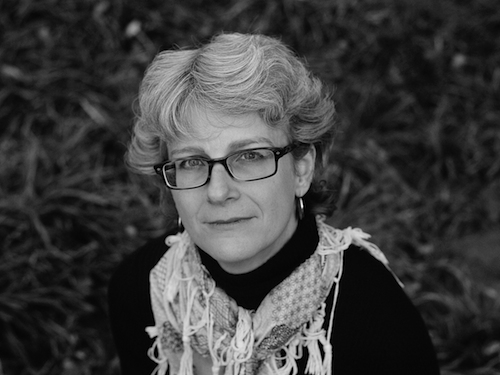Next weekend, The Twig Book Shop will host a reading and signing by one of contemporary sf and fantasy’s most respected authors.
Multi-award winning writer Kij Johnson will read from her short story collection At the Mouth of the River of Bees on Friday, Jan. 15, at 6 p.m. The Twig is located at 306 Pearl Parkway, Ste. 106, San Antonio TX 78215.
Kij Johnson is a winner of the Hugo, Nebula and World Fantasy Awards. In addition to her World Fantasy Award-nominated At the Mouth of the River of Bees, her books include the novels Fudoki and Fox Woman. Each summer, she teaches the prestigious Intensive Novel Workshop for the Center for the Study of Science Fiction; she has also taught at the summer science-fiction workshops Clarion, Clarion West and Odyssey. In the past, she has worked at Tor Books, Dark Horse Comics, Wizards of the Coast and TSR; currently she is an assistant professor of creative writing at the University of Kansas.
In advance of her San Antonio appearance, I asked Kij to discuss her twin careers of writing and teaching writing.
You’ve spent quite some time teaching writing both in workshops and in university settings. What advice can you give emerging genre writers, and what are the most common mistakes you see them make?
There are lots, but here are a couple!
* Retreading other peoples’ work. Often we try to recreate a work we love understanding that what we should be doing is trying, not to reproduce the work but the way that work made us feel. Instead of trying to reproduce Peter Beagle’s Last Unicorn, or George R.R. Martin’s Game of Thrones, we would be better off analyzing what the original did for us — broke our hearts, made us yearn, made us feel vicariously wise or dangerous or full potential — and then write a different story that does the same thing emotionally, instead of the same thing as far as the plot or genre goes.
* Writing as though movies, TV, and comics are the same as books. In fact, everything about the experience is different: the tools, the process, the degree of autonomy, the scale, the strengths….
 Can you pinpoint specific books or stories that were pivotal in you choosing to write fiction yourself? What were they?
Can you pinpoint specific books or stories that were pivotal in you choosing to write fiction yourself? What were they?
Patrick O’Brian’s Aubrey and Maturin books opened my eyes to just how much is possible in fiction, a sweeping narrative saga about complex characters behaving imperfectly in a gorgeous global setting.
John Myers Myers wrote a book that changed everything for me: Silverlock. It was written a lot of decades ago, and the general conceit is that there is a Commonwealth (of letters), where a shallow, embittered person can discover worlds of possibility. This doesn’t even touch the book’s charm and strength; but after reading it twenty years ago, I started to engage with works I loved as a writer — what would I do differently? How would I insert myself into the story?
Stylistically, your short stories range from the elegant to the disturbing. Do you decide to adopt a different narrative approach before you start a story, or is that more likely to evolve as you begin drafting the piece?
I often know from the very beginning that a work will have a specific stylistic aim: cool and elegant; classic and emotionally detached; angry and sexy; over-the-top lavish. However, that often changes as I go. The novella I just handed in to tor.com, The Dream-quest of Vellitt Boe, started out intending to be a Lovecraft pastiche as far as voice went and changed to something much more American-letters-y.
Your novels The Fox Woman and Fudoki take place in Medieval Japan. How difficult is it to research such a complex setting, and do you plan to return to that time and era in future work?
It was hard! I read everything — and I do mean everything — that was available in translation, in all available translations. I read a lot of scholarly papers, as well. I’m not sure whether I will return to the place and time: I have another book I could tell that takes place a couple of hundred years sooner, but it depends on some business-type stuff.
You’ve said you spend a lot of time working and reworking your stories. Why is that and how many incarnations is each story likely to see?
I seldom get everything right off the bat. Even if I am close, there is almost always something very delicate I can do to tweak it — basically, the equivalent of using not just the 220-grit sandpaper, but the 600. Rewrites can range from five or six to scores of rewrites of different levels of intensity.
What else are you working on right now? Any new books or stories you can tell us about?

